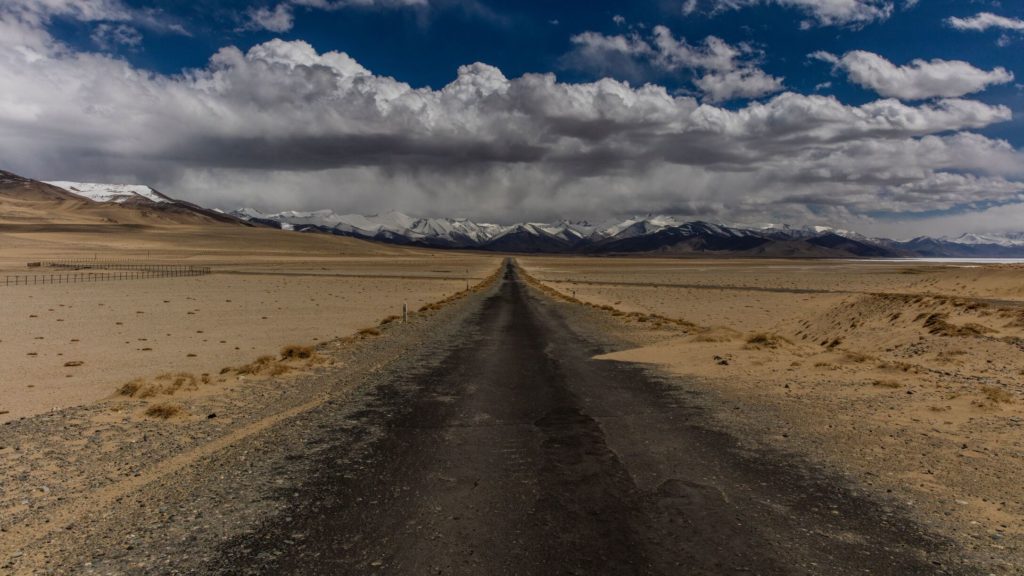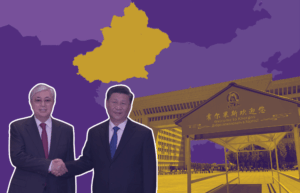For nearly a year and a half, the Pamiri minority in Tajikistan, who live mainly in the Gorno-Badakhshan region in the east of the country, have been suffering harsh repressive measures at the hands of the government of Tajik President Emomali Rahmon. But this group is not the only one to suffer from the continued authoritarianism of the regime. NGOs, activists, bloggers and homosexuals have also been targeted by the government in recent months, as shown in this overview of the state of human rights in Tajikistan.
On February 16, Radio Ozodi, the Tajik service of the American media Radio Free Europe, reported that, on the recommendation of the Ministry of Justice, the activities of the Independent Center for the Protection of Human Rights were interrupted. This is yet another obstacle to the protection of human rights in Tajikistan, targeting an organization that has been defending human rights for 13 years in the country. A measure “in line with the tactics of administrative and bureaucratic harassment of NGOs in Tajikistan that have been practised for five to seven years now” according to Syinat Sultanalieva, a researcher at the NGO Human Rights Watch.
Tajik media outlet AsiaPlus comments that the Independent Centre for the Protection of Human Rights was one of the few public bodies where it was possible to seek free legal assistance. It dealt with issues such as access to social housing for the population. According to the Ministry of Justice, some 500 public organizations were closed down in 2022 – 350 more than in 2021.
But censorship of civil society does not stop with shutting down NGOs. Bloggers and activists are also victims of accelerating repression. The United Nations Special Rapporteur on Human Rights Defenders, Mary Lawlor, visited Tajikistan from 28 November to 9 December 2022. The crackdown on journalists and bloggers is arbitrary with “little well-founded evidence, following inadequate investigations and trials held behind closed doors,” she told Radio Free Europe journalist Bruce Pannier last December.
Bloggers and journalists targeted by authorities
In recent months, the number of arbitrary arrests of bloggers in Tajikistan has been increasing. Cabar Asia explains that at least three people have been accused of “immorality”. On 18 January, influencer Khabibulo Himmatzoda was detained for five days in Dushanbe for “offensive videos” of a possible sexual nature, reports Radio Ozodi. The same fate befell blogger Saida Latifova, who was fined on similar charges last December. According to the police, she “obscenely insulted other callers during a live broadcast on the social network Tik-Tok”.
Read more on Novastan: Humans Rights Watch continues to be concerned about Central Asia
According to Human Rights Watch researcher Syinat Sultanalieva, “it is clear that the regime is becoming more and more restrictive every year. Where there was a vibrant civil society just a decade ago, the very few bloggers and NGOs still in the country have to find ways to continue their work without being arrested.”
LGBT rights still taboo
In Dushanbe, ten members of the LGBT community were arrested on suspicion of infecting citizens with HIV, Radio Ozodi reported on 15 February.
Read more on Novastan: LGBT community harassed in Tajikistan
Sultanalieva comments: “What was interesting about this article was that the police authorities admitted to ‘monitoring’ LGBT communities in some way, which adds to the rumors about the ‘gay lists’ that the police keep.” Nevertheless, she confirms that there are still LGBT activist groups in Tajikistan working undercover. For their part, Tajik authorities continue to deny harassment or persecution of sexual minorities.
However, Mary Lawlor said that Tajikistan does not follow the recommendations of international organizations on the rights of members of the LGBT community, because according to Tajik law, these people “offend against the norms of morality and human ethics in the country.”
Moralisation of public life
Cabar Asia notes a reinforcement of conservative moral values in Tajikistan, as the reasons for these arrests are not really specified. Indeed, under the guise of “increasing citizens’ awareness of how to use social networks and preserve culture and national identity”, the government’s objective is to reduce the margin of freedom of expression in the public space.
Read more on Novastan: Tajikistan – the fight against prostitution harms entire population
“The first goal is to increase control over public opinion, specifically those who have the power to shape public opinion,” explains Tajik media expert Abdumalik Kadyrov in the Cabar Asia article. But, by acting this way, he believes that the authorities “have gone so far that they themselves no longer know what they are doing.”
Repression of the Pamiris still continues
Another sign of authoritarian drift is that since May 2022, the Tajik authorities have been targeting members of the Pamiri community, who live mainly in eastern Tajikistan. The government reacted to peaceful protests in this autonomous province by launching a security operation that left dozens dead and hundreds detained.
Read more on Novastan: European reaction to repression in Tajikistan has no effect
According to the Tajik media outlet Pamir Daily, which has been following the trials closely, the president of the Supreme Court described the Pamiri protesters as “leaders of criminal gangs from Khorog and Rushan” [towns in the region where the demonstrations took place]. He said that all suspects had been prosecuted in accordance with the country’s laws. They were sentenced to between one year and life imprisonment. The trials were held behind closed doors, before arbitrary judges and with no transparency.
However, for Syinat Sultanalieva, “it is very difficult to speak of a turning point in the repression. This is probably a brutal show of force to regain control of the region and to send a signal to the rest of the critical people in the country.” But at this very uncertain time in Tajikistan’s history, “the authorities should be held accountable for human rights violations committed by their agencies against ordinary citizens, human rights defenders and others.”
Written by Emma Collet
Translated by William Roberts
For more news and analysis from Central Asia, follow us on Twitter, Facebook, Telegram, Linkedin or Instagram.
 In Tajikistan repression continues
In Tajikistan repression continues 



